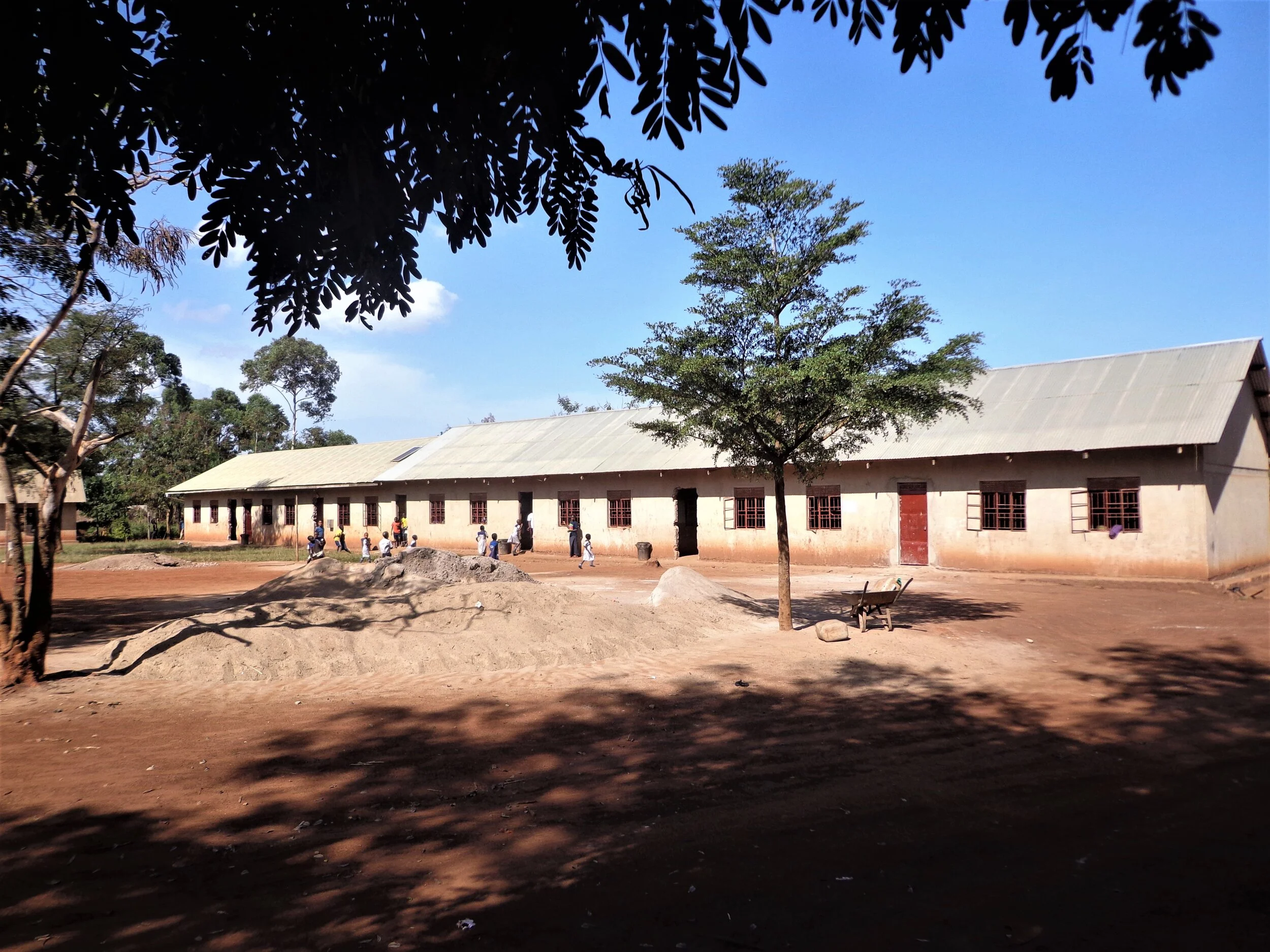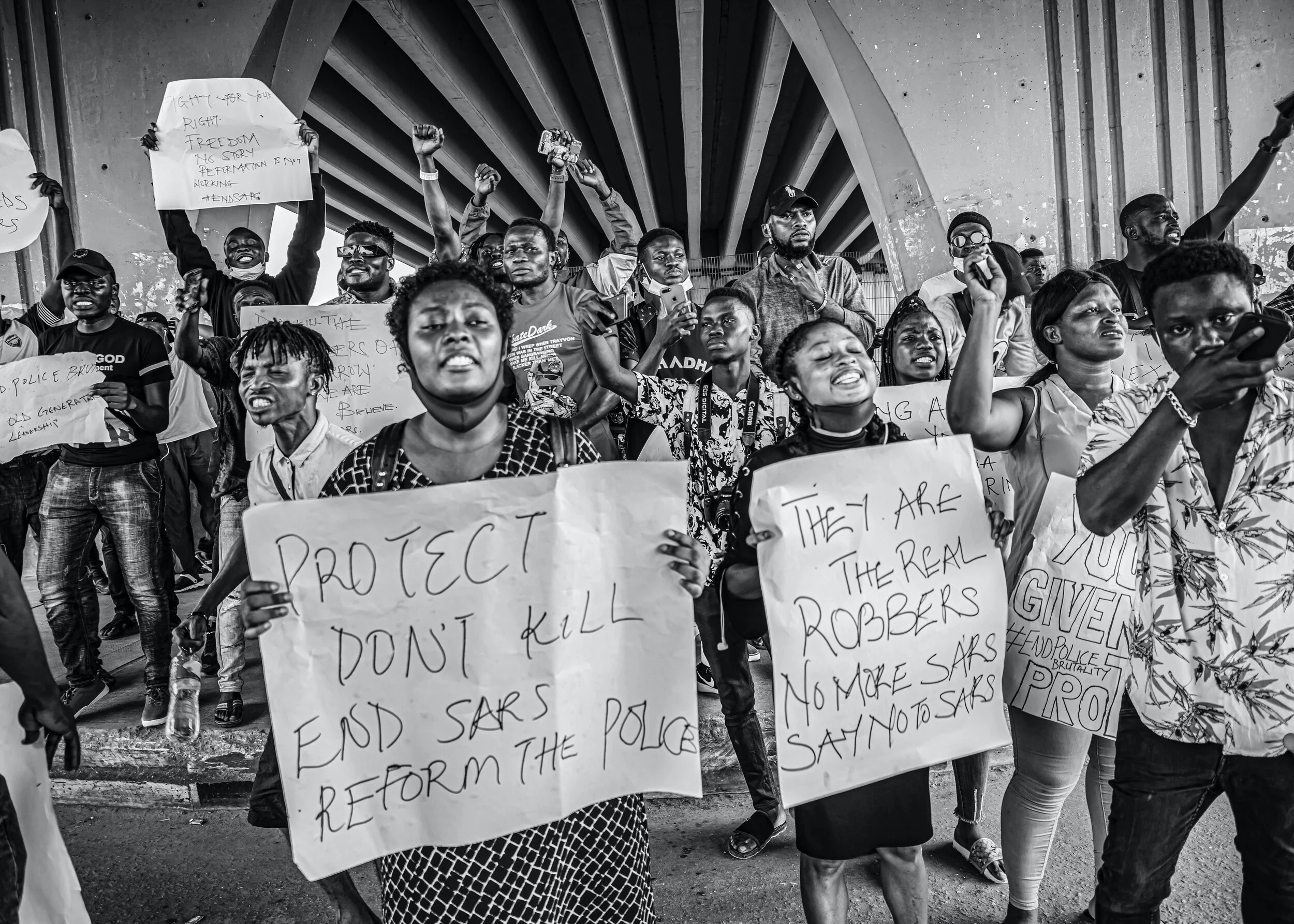Providing Special Needs Education Where Resources Are Scarce
Dotun Akande. Founder of Patrick Speech and Language Centre.
Photo: Shayera Dark
Dotun Akande had never heard about autism until her then 2-year-old son Patrick was diagnosed with the condition that impairs communication and social interaction. Unbowed, Akande enlisted a speech therapist and persuaded his school teacher to tutor him for an extra hour after school. She also relied on her instincts, employing music therapy and rewards to aid his condition. By age 8, Patrick had improved significantly. Inspired by her experience and struck by the lack of resources for parents like her, Akande went on to found Patrick Speech and Language Centre in 2006 to provide educational and vocational support to Nigerians with autism.
“No one wanted to come out to talk about [autism],” she said. Even those whose autistic children were receiving therapy, she said, rarely spoke about their reality. “I decided to talk about it in the papers and was alarmed by the number of families that responded, which led me to start the centre.”
A 2017 report on inclusive education by the World Bank and the Global Partnership for Education found that though literacy among children with learning disabilities has increased globally, these children remain severely excluded from educational policies and still lag far behind their peers. The study, conducted in 19 middle- and low-income countries, concluded that 3 in 10 children with disabilities have never enrolled in school and just about half of those who do enrol complete primary school.
In Nigeria, which has the highest number of out-of-school children in the world, ascertaining the percentage of those with learning disabilities is next to impossible as official data is nonexistent. As such, any educational plan will most likely not address the needs of those with disabilities, pushing them further to the margins of society.
Lack of awareness on learning disabilities in Nigeria coupled with teachers and parents who expect quick, miraculous fixes is another hurdle special needs children encounter.
“You bring a child to me at 19 and expect a turnaround in three months? It’s not possible,” said Akande, of overzealous parents. She said that such external pressures can negatively impact a child’s psyche and academic performance.
It’s something Oladoyin Idowu knows all too well.
“I’ve had teachers call me stupid and that affected my self-esteem,” Idowu said, recalling her experience as a student with dyslexia. After years of struggle, she found her self-worth in her flair for interior design, which she said gave her the confidence to return to school.
Oladoyin Idowu. Founder of One Word Africa.
Photo: Courtesy of Oladoyin Idowu
Today, Idowu runs One Word Africa, an NGO that helps those with dyslexia reach their full potential and raises awareness on the learning disorder — which is characterized by difficulty with literacy. The organization provides support to parents, hosts monthly meetings for those with dyslexia to share their stories and exchange learning tips, and trains teachers to identify common traits associated with the disability as well as instructional techniques.
Queenette Enilama, a private tutor who has benefited from these trainings, collaborates with teachers on individualized multisensory learning methods to improve her client’s learning outcomes.
“I say to the teachers: ‘If the child can’t answer the questions on paper, ask her verbally. If she answers correctly, then she should be scored in the same way as a child who answered on paper.”
Despite the headway she has made with her students, Enilama believes more needs to be done to sensitize teachers.
“I had a 7-year-old pupil with a very high threshold for pain. But if you mistakenly said to her, ‘Why are you so dumb?’ her world would come crashing down because that’s what she was called at school.”
While Nigeria’s national policy on education advocates, among other things, inclusive and free education for people with special needs, training of special education teachers, and regular census and monitoring of people with special needs for adequate educational provision — the government has yet to deliver the goods. And even if there were laws enforcing schools to practice inclusion education, the scarcity of instructional materials coupled with understaffed schools and overpopulated classrooms would render the policy ineffective.
To be sure, special needs education is capital intensive for all involved. Training for staff and internationally-recognized certifications aren’t cheap. Neither are the fees for specialized schools. A term at the Patrick Speech and Language Centre, for example, costs 500,000 naira (US $1,375), a massive financial undertaking for many in a country where roughly half of the population lives on less than $2 a day. This compounds the problem for families, who often find financial constraints oblige them to terminate their child’s therapy — if families deem the progress too slow, or choose not to enrol their children in school.
Aside from cost, the stigma around disability often drives parents to expedite their children’s entry into regular schools even before they’re ready to integrate, according to Akande, whose organization slowly integrates children with autism into mainstream schools by allowing them to attend on alternate days. She, however, noted early intervention is vital for integration.
Per the national policy on special needs education, Nigeria’s three tiers of government are required to fund programs for people with learning disabilities, with the Federal Ministry of Education coordinating activities between relevant agencies. Still, local NGOs devoted to learning disabilities struggle to get funding.
“So many schools have reached out to One Word Africa, but we couldn’t help as much as we would have loved to because of lack of resources,” Idowu said, adding government bureaucracy has thwarted her organization’s application for financial aid.
She has turned to philanthropists and considered partnering with organizations aligned with education for help, but responses, so far, haven’t been promising.
“Most aren’t interested in dyslexia,” she explained, “and most times, people in charity are in it for the prestige, not because they want to make an impact.”
This story was originally published by Devex.
You may Also Like












